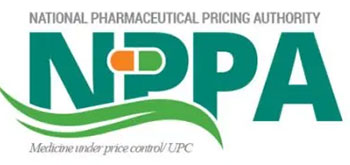Offshore Patrol Vessel 'Sarthak'
Why in NEWS?
- An Offshore Patrol Vessel (OPV) for the Indian Coast Guard was launched on 13th August 2020, and re-christened as Indian Coast Guard Ship ‘Sarthak’.

About
- The launching ceremony held at Goa Shipyard Limited was conducted through video conferencing from Coast Guard headquarters at New Delhi.
About Sarthak
- Sarthak is the 4th in the series of five OPVs deployed by the Coast Guard to enhance maritime security.
- It has been designed and built indigenously by Goa Shipyard Limited in line with the Prime Minister Narendra Modi’s vision of ‘Make in India’.
- The Ship is fitted with state-of-the-art Navigation and Communication equipment, sensor and machinery.
- The 105 Metre ship displaces approximately 2350 tons and is propelled by two 9100 KW diesel engines designed to attain a maximum speed of 26 knots, with an endurance of 6000 Nautical Miles.
- The sustenance and reach, coupled with the latest equipment and system, provides her the capability to perform the role of a command platform and undertake tasks to fulfill the Coast Guard charter.
- The ship is designed to embark and carry a twin-engine helicopter, four high speed boats and one inflatable boat for swift boarding and Search & Rescue operations.
- The ship is also capable of carrying limited pollution response equipment to undertake oil spill pollution response at sea.
Exclusive Economic Zone (EEZ)
- The 1982 United Nations Convention on the Law of the Sea (UNCLOS) defined the EEZ as an area that is adjacent to and beyond the territorial sea over which a sovereign nation has certain special rights with respect to the wind and water, and also oil and natural gas extraction.
- It can extend to a maximum of 200 nautical miles from the baseline. The baseline is normally measured is the low-water line along the coast as indicated on large-scale charts officially approved by the coastal state.
- The EEZ includes the contiguous zone.
- Within the EEZ, the country has rights over natural resources. The country has jurisdiction over some activities for the reasons of environmental protection, among others.
- The difference between territorial sea and the EEZ is that the former confers full sovereignty over the waters, whereas the latter is merely a “sovereign right” which refers to the coastal nation’s rights below the surface of the sea. The surface waters are international waters.
National Pharmaceutical Pricing Authority (NPPA)
Why in NEWS?
- A Price Monitoring and Resource Unit (PMRU) has been set up in Karnataka under the aegis of National Pharmaceutical Pricing Authority (NPPA), Department of Pharmaceuticals, Ministry of Chemicals and Fertilizers, Government of India.

About
- PMRU will function at the State level under the direct supervision of the State Drug Controller for increasing outreach of NPPA.
- NPPA, under its Central Sector Scheme named Consumer Awareness, Publicity and Price Monitoring (CAPPM), has already set up PMRUs in 12 States/ UTs.
About PMRU
- PMRUs are societies registered under the Societies Registration Act having its own Memorandum of Association/ Bye laws.
- The PMRUs are expected to strengthen drug security and affordability at regional levels.
Function-
- To assist NPPA in monitoring of prices of drugs, ensuring availability of drugs and raising consumer awareness.
- They act as collaborating partners of NPPA with information gathering mechanism at the grass-roots level.
- They will render necessary technical assistance to both the NPPA and the respective State Drug Controllers of States/ Union Territories.
- Collect samples of medicines, collect and analyse data and make reports with respect to availability and over-pricing of medicines for taking action under the provisions of Drug Price Control Order (DPCO).
About NPPA
- It is an independent body under Department of Pharmaceuticals under the Ministry of Chemicals and Fertilizers.
- NPPA has been working in tandem with State Governments during the COVID-19 pandemic to ensure seamless availability of life saving essential medicines including HCQ, paracetamol, vaccines, insulin and medicines under COVID protocol.
- NPPA has plans to set up PMRUs in all the 36 States/ UTs.
- NPPA is headquartered at Delhi only but with PMRUs, NPPA shall have outreach at State Level as well.
Function-
- To fix/revise the controlled bulk drugs prices and formulations,
- Enforce prices and availability of the medicines under the Drugs (Prices Control) Order, 1995/2013,
- Recover amounts overcharged by manufacturers for the controlled drugs from the consumers
- Monitor the prices of decontrolled drugs in order to keep them at reasonable levels.
- It fixes ceiling price of essential medicines that are listed in Schedule I of DPCO, 2013.
Naval Innovation and Indigenisation Organisation (NIIO)
IN NEWS
- Raksha Mantri Shri Rajnath Singh launched the Naval Innovation and Indigenisation Organisation (NIIO) through an online webinar. Chief Minister of Uttar Pradesh Shri Yogi Adityanath and other dignitaries were also present at the event.
ABOUT
- The NIIO is a three-tiered organization. Naval Technology Acceleration Council (N-TAC) will bring together the twin aspects of innovation and indigenization and provide apex level directives. A working group under the N-TAC will implement the projects.
- A Technology Development Acceleration Cell (TDAC) has also been created for induction of emerging disruptive technology in an accelerated time frame.
- The Draft Defence Acquisition Policy 2020 (DAP 20) envisages Service Headquarters establishing an Innovation & Indigenization Organization within existing resources.
- During the launch event, the Indian Navy signed Memorandums Of Understanding (MoUs) with:-
- Uttar Pradesh Expressway Industrial Development Authority (UPEIDA);
- Raksha Shakti University (RSU), Gujarat;
- Maker Village, Kochi; and
- Society of Indian Defence Manufacturers (SIDM).
- An online discussion forum for engaging domestic industry and academic institutes has been created in partnership with RSU and was launched during the webinar.
- A compendium of Indian Navy’s Indigenisation perspective plans titled ‘SWAVLAMBAN’ was also released on the occasion.
PURPOSE
- The NIIO puts in place dedicated structures for the end users to interact with academia and industry towards fostering innovation and indigenisation for self-reliance in defence in keeping with the vision of Atmanirbhar Bharat.
CONCLUSION
- The Navy has an in-house design bureau, which, over the years, has made significant progress in designing the ‘float’ component, and made some progress in the ‘move’ component, which is propulsion. However, there is heavy reliance on imports for armaments, called the ‘fight’ component.
India Ranks First in Number of Organic Farmers
IN NEWS
- India ranks first in number of organic farmers and ninth in terms of area under organic farming;
ABOUT
- The growth story of organic farming is unfolding with increasing demand not only in India but also globally.
- In a world battered by the COVID pandemic, the demand for healthy and safe food is already showing an upward trend and hence this is an opportune moment to be captured for a win-win situation for our farmers, consumers and the environment.
- India ranks first in number of organic farmers and ninth in terms of area under organic farming.
- Sikkim became the first State in the world to become fully organic and other States including Tripura and Uttarakhand have set similar targets.
- North East India has traditionally been organic and the consumption of chemicals is far less than rest of the country. Similarly the tribal and island territories are being nurtured to continue their organic story.
INITIATIVES
- With the aim of assisting farmers to adopt organic farming and improve remunerations due to premium prices, two dedicated programs namely Mission Organic Value Chain Development for North East Region (MOVCD) and Paramparagat Krishi Vikas Yojana (PKVY) were launched in 2015 to encourage chemical free farming.
- Both PKVY and MOVCD are promoting certification under Participatory Guarantee System (PGS) and National Program for Organic Production (NPOP) respectively targeting domestic and exports markets. Simultaneous thrust given by the Agri-export Policy 2018.
- India can emerge as a major player in global organic markets. The major organic exports from India have been flax seeds, sesame, soybean, tea, medicinal plants, rice and pulse.
- The presence of aggregators is imperative to bring about economies of scale for the small and marginal farmers. Hence the concept of market led One district - One product is being encouraged,
- The Green Caravan of Kohima created market linkages from all villages of Nagaland to urban areas for vegetables, handicrafts and handlooms.
- Infusion of digital technology in a much bigger way has been a major takeaway during the pandemic period and is a welcome norm.
CONCLUSION
- Natural farming is not a new concept in India, with farmers having tilled their land without the use of chemicals - largely relying on organic residues, cow dung, composts, etc since time immemorial.
- The philosophy underlying organic farming of integration of the elements – soil, water, microbes and ‘waste’ products, forestry and agriculture is the correct recipe for sustainable use of natural resources, which are coming under severe stress due to ever increasing requirement of food and feedstock for agri based industry.
- This is also in sync with the Sustainable Development Goal 2 targeting ‘end hunger, achieve food security and improved nutrition and promote sustainable agriculture.
- Hence with greater awareness and capacity building of the producers on compliance with international standards, Indian organic farmers will soon be reinforcing their rightful place in global agri trade.









